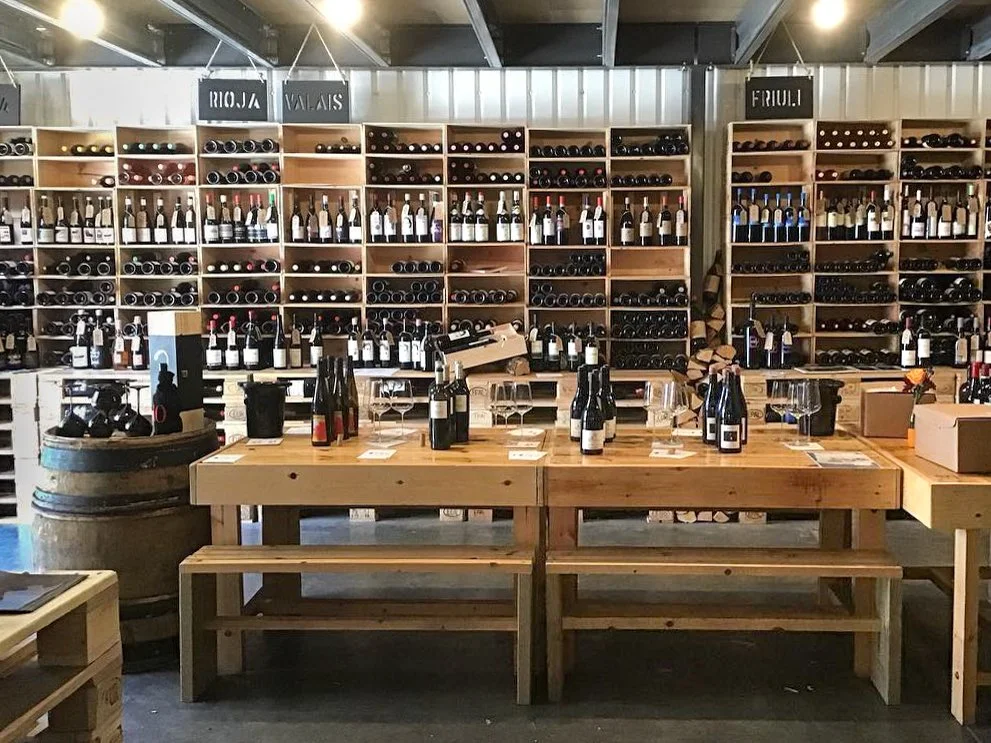What are natural wines?
Natural, organic, biodynamic. Trends in the wine world that are older than you think, maybe good for you and the environment. Discovering these production methods that perdure harmoniously in our contemporary landscape.
How it started…
My first, true, initiation to wine was in my mid twenties, through a friend - avid (and thirsty) fan of the Burgundy region. Tastings and travels allowed me to discover the delicate, wavy and round Chambolle, be transported by Volnay, and sip the sights of Gevray and more…
Soon enough, the Pinot Noir became my dada, through the grape of which I discovered -comparatively- the new worlds from Napa and Sonoma to Oregon and beyond.
Of course, this is the start of a journey and although not exclusive to PN, I am seduced by the ‘natural tendency’ of Burgundy, with its subtle, elegant and poetic wines.
My interest gradually expanded towards the naturals, organic and biodynamic processes, and although partial to some of these wines, it is important to acknowledge that it is a sector that leaves us drinkers largely confused as to what they really do for us.
In that light, let’s dive into the topic of these softer wines, to understand their benefits for our Earth and our health, and why we perhaps should sign up to a biodynamic wine tasting.
Confused?
Effervescent to cloudy textures, tropically sweet to acre taste notes, good organic stench at times…Natural wines seduce a generation on a quest of a more ritualistic world, and explore partisan palates.
The natural wine fridge has one common thread: a wine making process that is free from herbicides, fungicides and pesticides and that promotes low to no intervention.
Calling the organics and the biodynamics.
By definition - Organic certified wines are produced from an organic terroir, that as understood, excludes the use of herbicides and pesticides. This process may benefit the soil, biodiversity, and enhance the flavors of the wine according to some.
These are wines famed for their lower sugar and no added sugar content, to yield very low amounts of natural sulfites and to almost protect merry drinkers from a hangover.
In that regard, let’s just highlight that it is the number of chemicals and ethanol inherent in alcohol or tannin concentration in the wine - not the sulfites, that contribute to said hangover.
Organic vines, as any organic produce, are susceptible to greenwashing, but ‘sustainable’ biochemical residues remain more digestible. There are 72 legal additives usually added to conventional wine to stabilize aroma, flavor and quality. In that respect, organic certified wines may be better for le gut.
Moving on, biodynamic viticulture is a world of its own. Connecting the vine to its environment, it follows the belief that everything in the universe is interconnected. Once again, the use of chemical herbicides or pesticides is forbidden and the grass around the vines is left uncut. The winemakers use natural tools such as manure, animal remnants (horns etc), or quartz to improve the soil’s structure with moisture and organic content.
The process holds to a regimented schedule that is divided into four categories: Root, fruit, flower, and leaf days. For example, you wouldn’t want to harvest on a leaf day, it must be done on a root day. This schedule follows astronomical configurations because it is believed that the moon and stars may have a great effect on the winemaking process, as it does on our moods too.
To say the least, it is a grounding and spiritual process.
Grounding, not grounded.
White, skin contact ‘orange’, pink, red. Eco-friendly viticulture is partially organic, largely experiential, it is not regulated, providing the winemaker liberties and sensitivity in the production process. Natural winemaking requires much more manpower, spraying, maintenance and observance. Despite a sustained effort, the vines will fluctuate as they adapt to the changing soil and seasons. No two bottles will be the same, so prepare for comparative notes and candid interpretations.
Agriculture is a science, and although there is much more to learn from biodynamic wine production and farming, these natural processes re-establish a slower organic pace, reinforce our environment and our bodies.
Wine tasting is subjective after-all, and I do very much enjoy the fizz of a skin contact wine for aperitivo, or some wonderful terroirs from Friuli, Burgenland, and beyond.
Dynamic Vines, London
Founded in 2005 by Frederic Grappe, Dynamic Vines is the leading importer and distributor of premium organic and biodynamic wines. With a focus on European productions, Dynamic Vines brings special focus to well established producers as well as support to lesser known winemakers.
Dynamic Vines trades with restaurants, bars and wine shops, and is also open to the public. I enjoy visiting them on Saturday mornings when the market is open, Frederic a sommelier for many years, and his team always have immense passion and knowledge to share about these heartful wines.
Visits and tastings are encouraged!
Wine shop online or in person every Saturday from 9am - 2pm.
Unit 5, Discovery Business Park, St James's Rd, London SE16 4RA
+442070646841

